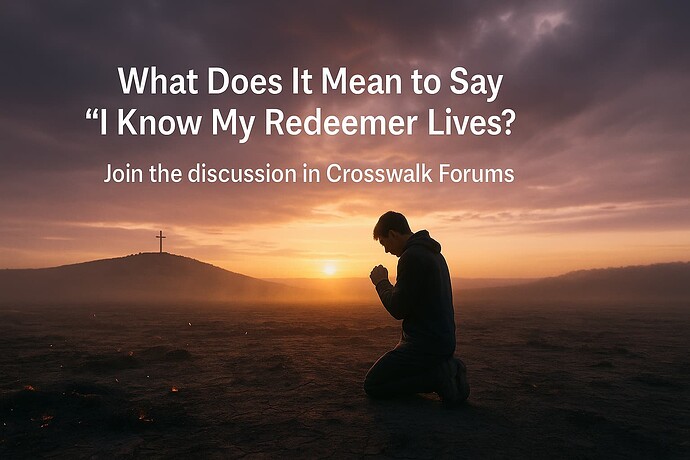What Does It Mean to Say “I Know My Redeemer Lives”?
As believers reflect on Job’s unshaken faith in the face of suffering, we invite you to join the conversation in Crosswalk Forums.
#HopeInSuffering #MyRedeemerLives #FaithInHardTimes #christianforums #crosswalkforums #forums #crosswalk #faithcommunity #faithforums
In one of the most powerful declarations of faith in Scripture, Job cries out, “For I know that my Redeemer lives, and at the last he will stand upon the earth” (Job 19:25).
What makes this so incredible is the context—Job is covered in sores, grieving his children, abandoned by friends, and yet he clings to a truth bigger than his pain.
What does that line mean to you personally—especially during seasons of suffering?
How does the hope of a living Redeemer change the way we endure hardship?
“Hope speaks even from the ashes.”
This short reflection captures the moment beautifully:
1 Like
Job’s declaration, “I know that my Redeemer lives,” is one of the most profound affirmations of faith in all of Scripture, made not in comfort but in the crucible of unimaginable suffering. Stripped of wealth, health, and family, and surrounded by voices that misunderstood his pain, Job anchors his hope not in present deliverance but in the living reality of a future Redeemer. This statement is more than wishful thinking—it is a prophetic declaration of trust in a God who sees, who will vindicate, and who will ultimately stand victorious upon the earth. Job believed in a personal Redeemer—One who would advocate on his behalf, restore justice, and bring resurrection beyond the grave. For the believer today, this Redeemer is revealed in Jesus Christ, who not only lives but conquered death, validating Job’s hope and anchoring ours. To say “I know my Redeemer lives” is to declare, even in our darkest valley, that God has the final word—and that word is life, justice, and eternal hope.
2 Likes
I don’t think it means anything to just say, “I know my redeemer lives.” What’s important is that you DO know your redeemer lives.

